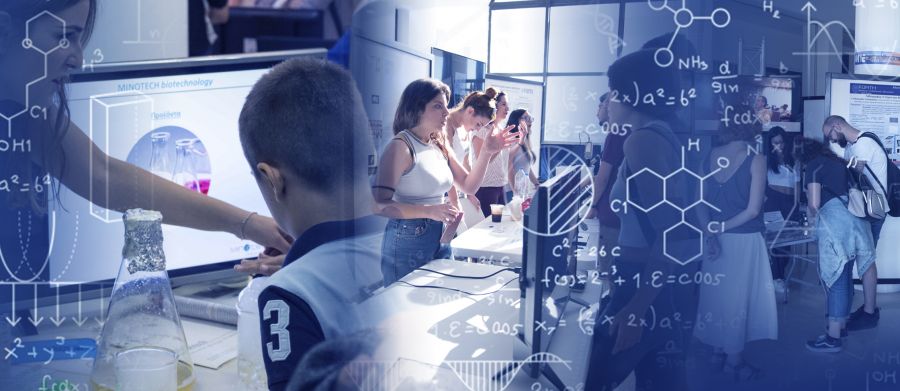Outreach

Researcher’s Night
The "Researcher’s Night" is considered a pan-European event for the promotion of science, research and technology in the society. It was launched and institutionalized by the European Commission (EU) 15 years ago, through specific research and innovation funding schemes (FP7, Horizon 2020).
The EU's main goal was to meet an increasing need of academic and research institutions to organize large-scale tailor-made events, whose primary objective would be to inform the local community on the research and innovation taking place.
A significant number of Institutions from the European Research Area (Universities, Research Centers, etc.) welcomed the EU initiative, adopted the idea of the Researcher’s Night and started organizing promotional activities and events. Nowadays, the Researcher’s Night is held every year, traditionally on the last Friday of September, in more than 370 European cities, with an aim to highlight Researchers' work and their contribution to society.
FORTH was one of the first institutions in Greece, but also in Europe, that was funded by the EU to organize events, introducing the idea of the Researcher’s Night to the local community of Crete. Through these events, from 2005 up to today, FORTH's goal is to promote its research activities and scientific work to the local community, hoping to inspire young people to pursue a research career.
FORTH regularly hosts more than 2,500 visitors per year during this event, offering them the opportunity to experience the magical world of Research, Technology and Innovation.
Indicative activities of the Researcher’s Night at FORTH
- Lab tours
- Demonstration of innovative technologies and cutting-edge research achievements
- Scientific Lectures by researchers
- Theatrical performances for all ages
- Chatlab - online meetings with some of FORTH’s researchers
- Educational activities and interactive workshops
- Games and quizzes for kids
- Online events
- Painting / photography competitions
- Student participation, demonstration of school research experiments
- Music events
- Charity activities








